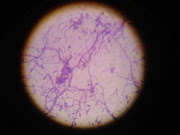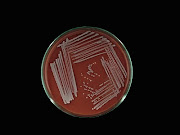(Article accepted in Journal of University Grant Commission, Nepal)
Upendra
Thapa Shrestha* and Vishwanath Prasad Agrawal
Research Laboratory for Biotechnology and Biochemistry
(RLABB), Sanepa, Lalitpur
* Author of Correspondence (Email: upendrats@gmail.com)
ABSTRACT
Bacterial insecticides
have been used for the control of nuisance and vector mosquitoes for more than three
decades. Nevertheless, Bacillus thuringiensis are the most commonly used
one due to their broad spectrum insecticidal property, environmentally friendly
and safe to non-target insects. The only limiting factor in use of B.
thuringiensis as bio-mosquitocides is their survival in waste water, the natural
breeding sites of mosquito. The study was thus carried out to evaluate the
survival and efficiency of B. thuringiensis in such different niches.
Seven crystal protein producing isolates were selected for insect bioassay against
the mosquito larva of Culex species both in lab and waste water, and further
processed for survival test. Among the isolates, S6 was found to
highly potent showing 100% efficiency in killing those mosquito larva in their
natural habitat. Other isolates were also found to be highly efficient showing
70-90%. These isolates not only showed mosquitocidal property but also found to
be growing in such environment. The growth of B. thuringiensis in waste
water was found to be increased for seventh day to about 1011
bacterial count and plunged gradually in subsequent days till 30 days. The
number of B. thuringiensis isolates was found to be 106 even
upto 30 days in such polluted water. This property of B. thuringiensis adds to their prominent characteristics as
bio-mosquitocides which can be commercialized for the control of many mosquito
borne diseases.
Full Article: Coming soon






















0 comments:
Post a Comment